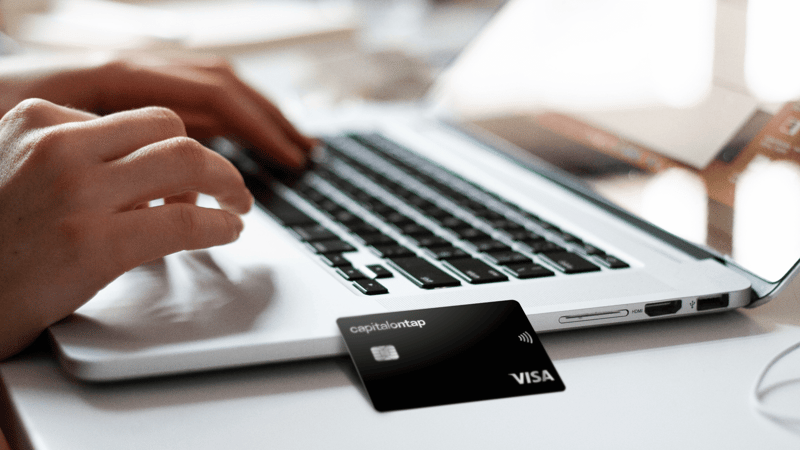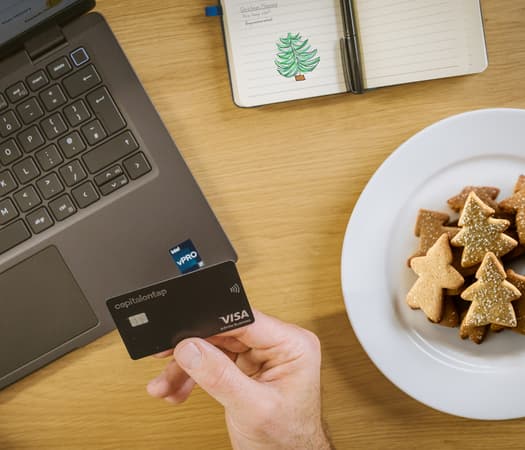Jump to a section
If you're a small business owner thinking about opening a savings account, you're not alone. Whether you're planning for growth, saving for future expenses, or simply trying to keep things organised, choosing the right type of savings account can make a big difference. But when it comes to business savings vs personal savings, which one is right for you? Let’s break it down in the simplest terms possible.
What is the difference between a personal and a business savings account?
On the surface, personal and business savings accounts may look the same. They both allow you to store money securely, earn interest, and set funds aside for the future. But when you dig a little deeper, they serve very different roles — especially if you’re running a business, no matter how small. Here are four key ways they differ:

Who the account is for
A personal savings account is opened in your name and meant for your own personal finances — things like holidays, home improvements, or emergency funds. A business savings account is opened in your company’s name and is intended specifically for money earned and used by the business.
Tax and financial reporting
Using a personal account for business income can make your taxes messy and hard to track. A business account keeps your records clean, separates income from expenses, and makes tax time far more straightforward — especially if you're VAT registered or working with an accountant.
Legal and financial separation
If your business is a limited company or incorporated entity, it’s legally separate from you. Keeping your money in a business account protects that distinction — which could help shield your personal assets if your business runs into legal or financial trouble.
Professionalism and credibility
Clients, lenders, and partners expect to see a professional setup. Accepting payments into a personal account or mixing finances can raise red flags. A business savings account shows you take your business seriously and can help boost your credibility.
Who should open a business savings account?
Almost any business can benefit from having a savings account — even if you’re just starting out.
-
Limited companies and registered businesses should always keep personal and business money separate for legal and financial clarity.
-
Sole traders aren’t legally required to use a separate account, but many still choose to for better organisation, easier tax prep, and a more professional appearance.
-
Freelancers, side hustlers, and part-time business owners may also find it helpful to have a dedicated place to store business funds, especially when planning for tax time or future expenses.
How do I get a business savings account?
Opening a business savings account is often much easier than people expect — and it doesn’t require a background in finance. Whether you choose a traditional bank or an online provider, the process is usually quick and straightforward.
Here’s a step-by-step guide to help you get started:
1. Think about what your business needs
Before jumping in, take a moment to consider how you’ll use the account. Ask yourself:
-
Will I be saving regularly or just holding a one-off amount?
-
Do I need to access the money often, or is it for long-term savings?
-
Am I looking for the highest interest rate, or more flexibility?
This will help you choose the type of account that fits your business best. Some offer higher interest if you don’t touch the money for a while, while others are more flexible with withdrawals.
2. Compare different savings account options
Not all business savings accounts are the same. It’s worth comparing a few key features:
-
Interest rates – Look for an account that helps your savings grow.
-
Fees and charges – Some accounts are free, while others charge monthly or require a minimum balance.
-
Ease of access – Can you manage it online? Are there limits on how often you can move money?
Taking a little extra time now can save you money and hassle later on.
3. Check if you’re eligible
To open a business savings account, you’ll usually need:
-
Proof your business exists: This could be a business registration number, your company’s tax identification number, or your HMRC registration if you're in the UK.
-
Personal identification: Such as a passport, driving licence, or national ID card.
-
Business documents (if applicable): For partnerships or limited companies, banks may ask for additional documents like:
- Partnership agreements
- Articles of incorporation
- Details of directors or shareholders
If you’re a sole trader, the process is usually simpler — you may just need your personal ID and proof of your business activity (like a recent tax return or invoice). If you’re considering applying for the Capital on Tap Instant Savings account, powered by ClearBank, you can read more about our eligibility criteria here.
4. Open your account
Once you’ve chosen a provider and gathered your documents, you’re ready to apply. Many financial institutions now let you open a business savings account completely online.
5. Start saving and earning interest
Once your account is open, you can transfer funds into it right away. This could be leftover profits, money for future investments, or savings set aside for taxes or emergencies. The sooner you start, the sooner your money can begin earning interest!
Benefits of a business savings account
There are several advantages to having a savings account just for your business:
-
Keep your finances organised: It’s much easier to track your income and expenses when your savings are separate from your personal money.
-
Earn interest on extra funds: Instead of letting money sit in a current account, a savings account helps it grow.
-
Plan for the future: Saving money makes it easier to invest in new equipment, cover unexpected bills, or manage quiet seasons.
-
Look more professional: If you ever apply for a loan or work with accountants, having a proper business savings account can make a good impression.
-
Simplify your taxes: With your business money separate, it’s easier to calculate earnings and expenses — which saves time (and headaches) during tax season.
-
Protect your personal assets: If your business is a limited company or corporation, keeping your money separate isn’t just helpful — it’s important for legal reasons. A business savings account helps show that your business is its own entity, which can protect your personal finances if something goes wrong.
Risks of a business savings account
While business savings accounts have many benefits, there are a few things to keep in mind:
-
Minimum deposits or fees: Some accounts require you to deposit a certain amount or keep a minimum balance. If you don’t, you might pay a small fee.
-
Limited withdrawals: Some savings accounts only allow a few withdrawals per month. That’s usually okay, but not ideal if you need to move money around often.
-
Not all businesses need one right away: If your business is brand new or not earning yet, you might not need a savings account immediately. But as soon as you start building up extra funds, it’s a good idea to open one.
Bottom line
If you run a business — even a small one — having a business savings account can be a simple, smart way to stay organised, earn a bit of extra money, and keep your finances healthy. It shows you're thinking ahead and treating your business seriously.
Whether you're a sole trader saving for your first tax bill or a growing company planning your next big move, a business savings account helps lay a strong foundation for the future. The Capital on Tap Instant Savings account, powered by ClearBank, makes it easy to start saving — with no hidden fees, no minimum balance, and interest paid daily. It’s designed to work alongside your business, not against it. Apply now.
FAQs
Can I use a personal savings account for my business?
You can, especially if you’re a sole trader — but it’s not the best idea. Mixing your personal and business funds can make taxes confusing and affect how professional you look to clients or banks.
Can I use a savings account as a business account?
You can open a business savings account to save money for your business, but it’s usually best to also have a business bank account to manage your day-to-day finances and a business credit card to make the most of your spending. The savings account is great for storing extra funds and earning interest.
Why would a business use a savings account?
Businesses use savings accounts to set aside money for future plans, emergencies, or taxes. It helps manage cash flow, keeps funds safe, and earns interest — all while keeping finances separate and easy to manage.











